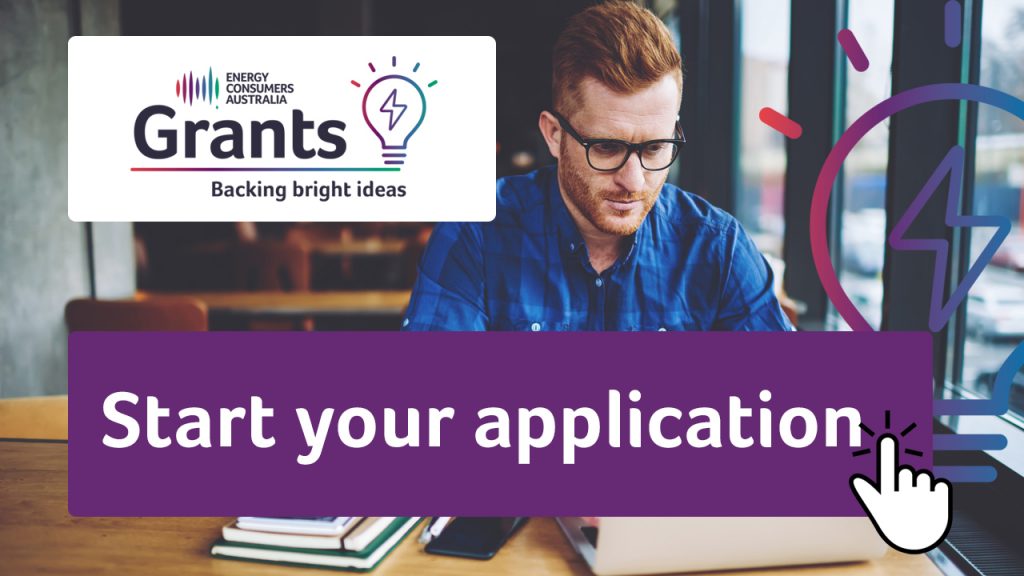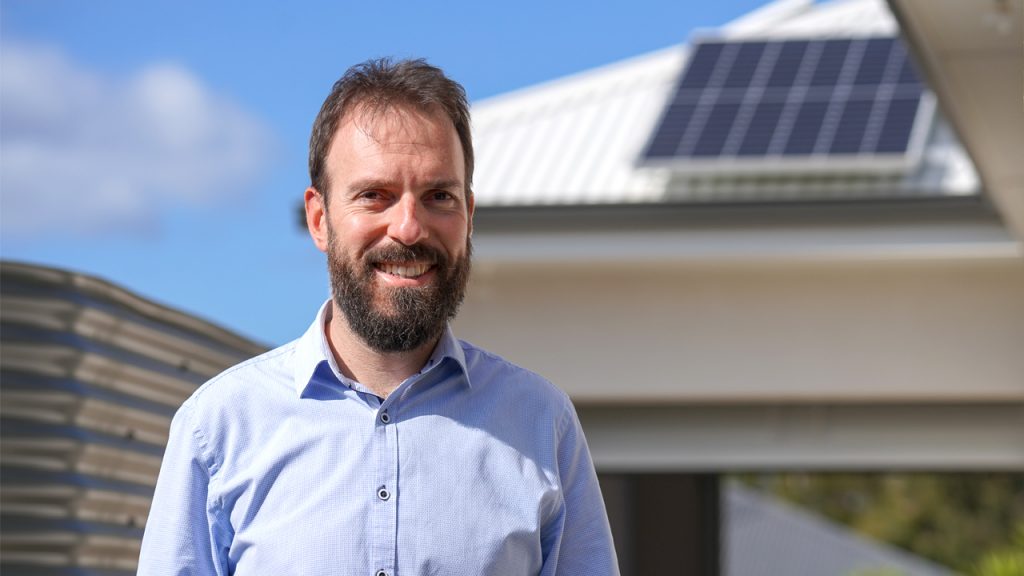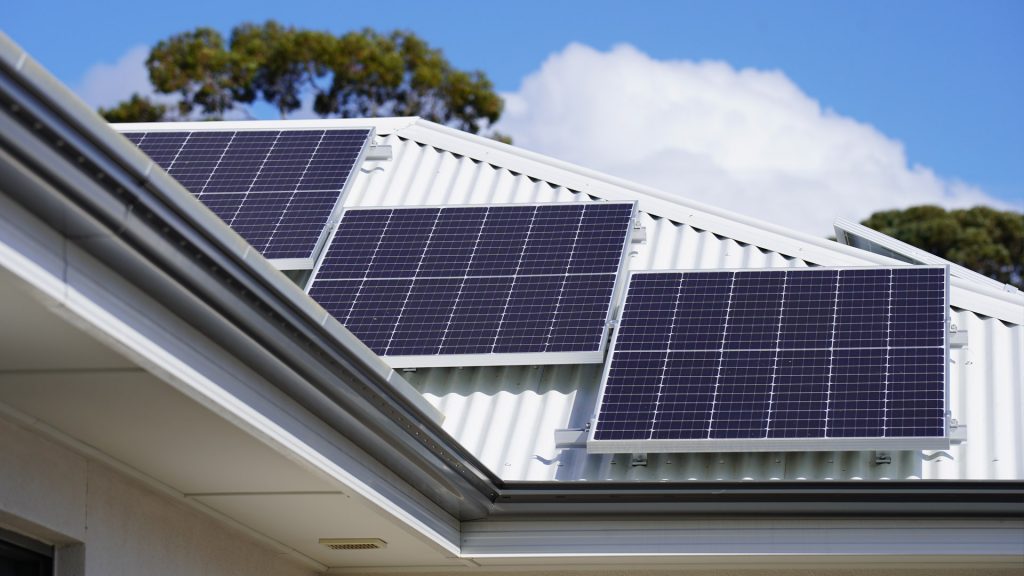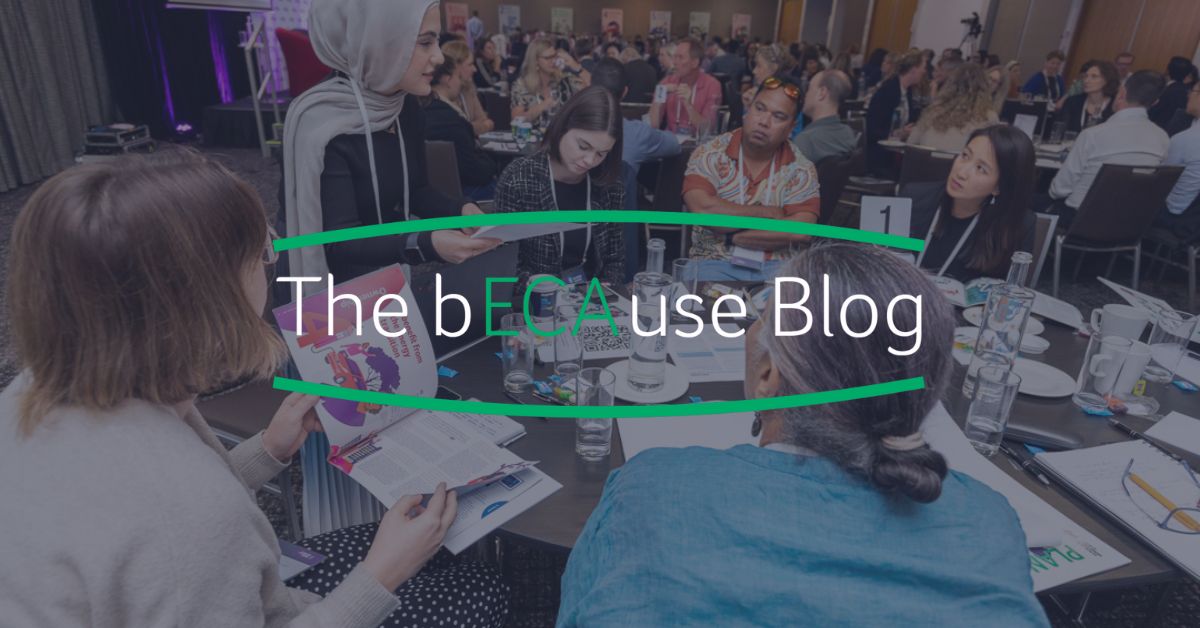If you would like to subscribe to the Energy Consumers Australia mailing list please click here.
From the CEO
Dear Readers,
I hope that you all had a peaceful and relaxing break over the Easter long weekend. As I sit at my desk, looking back over the past month, I am again reminded of how the climate is changing with both heatwaves and floods affecting many communities across Australia of late.
At times like these we see the “first responders” in the energy system at their best – rising to the challenge to restore services and help those in need. But such events also make clear the challenges we face when it comes to building and adapting infrastructure that is fit-for-purpose for our rapidly-approaching future. We know that these extreme weather events are becoming more common, which means we need better planning to mitigate their impact on households and businesses and build stronger resilience for the future.
The way our system responds in times like this: putting people first, problem solving, and prioritising quick action, shows us what can be achieved. Imagine if we directed that same mindset, resources and energy to making our communities and our energy system more resilient in the future?
We are currently working on a major piece of research around resilience, which we hope will bring to light the way catastrophic events impact on people and communities and reinforce how essential power is. We hope it will be part of an important discussion that we all need to have together. In the meantime, the Thriving Communities Flood Disaster Response is a great resource for help and information.
Obtaining Social Licence
South Australia continues to be at the frontier when it comes to experiencing the challenges facing an energy system that needs to adapt to the 21st century. A variety of factors, such as repair works, equipment failure and non-optimal weather conditions, led to an extremely reduced level of supply comparative to demand (almost 55% less than capacity) on Friday March 12 with prices spiking to $15,000 MWh. However, by Sunday March 14 the situation was reversed and there was an oversupply, and prices were negative. To keep the grid supply and demand in balance and avoid a state-wide blackout, some 50MW of output from rooftop solar systems was cut off (affecting 60,000 households) in addition to 17MW of utility scale solar. This raises the question of how we can better harness the generation capacity of rooftop solar in the future, rather than having to rely on stop-gap emergency measures that override consumers.
Our latest report ‘Social Licence for Control of Distributed Energy Resources (DER)’, which we launched with a live webinar on March 23, shows why engaging with consumers is critical. Obtaining permission from consumers to control their DER system and engaging with them to build their trust in the system, is crucial to supporting consumer participation in managing their energy use and generation. A big thank you to our panellists; Melanie Koerner (CutlerMerz), Vince Duffy (South Australian Government), Jo Witters, (Energy Security Board) and Violette Mouchaileh (Australian Energy Market Operator), who each gave an honest account of the challenges that we are facing in this space. Together with the large and highly-engaged audience we enjoyed an open and in-depth conversation about the critical nature of obtaining social licence for control of DER, which extends beyond rooftop solar systems to appliances in people’s homes and businesses.
I see this as the start of an ongoing dialogue. The intention is to continue this conversation by using the framework in our future conversations with governments, jurisdictions, and market bodies in encouraging them to embed these principles as a way of building trust and confidence in their decision making and how they manage the system. A number of key themes emerged from the discussion, such as whether ‘control’ is the right word when engaging with consumers on this issue (see full list of themes here). We would welcome your input to this via email here.
Meeting Consumers Values, Expectations and Needs
The Energy Security Board (ESB) is on the home stretch and is about to release its Consultation Paper for feedback. In this context it is critical that the ESB’s Post 2025 Market Design package lays a strong foundation for innovation in new energy services to benefit all household and small business energy consumers. Time is up on energy companies who simply want to sell more and more kilowatts. The key to a mass market in flexibility is meeting consumers values, expectations and needs, including making it simple, and ensuring that we narrow the divide in opportunities between consumers with technology (assets) and those without.
We welcome new competition in the market and are looking for business models which offer services that unlock the value from households and small businesses that can manage their use of appliances, generation and storage. This is particularly important when you take into consideration that more than 6 million Australian households (around half of all households) could be using solar, batteries or electric vehicles by 2030.
The recent Australian Energy Market Commission (AEMC) decision on the rule changes proposed the St Vincent De Paul Society, the Total Environment Centre and the Australian Council of Social Services (together with another proposal from South Australia Power Network) benefits all consumers. For consumers who already have solar systems or who wish to connect solar systems in the future, it opens up the potential to export more when the grid is not congested rather than being curtailed or constrained by export limits, and to be rewarded for making that generation available. For consumers supplied by the grid, prices will be cheaper, because the fixed revenue of the network is recovered across a larger (generation) base. We strongly support the changes to the National Electricity Rules recognising that if this change is to benefit consumers, extended and genuine consumer consultation will be critical. I go into detail on our stance on the announcement here.
Given our focus on the “second transition” underway in the 10 million plus homes and businesses that are increasingly using technology to manage their energy use and generation, I was delighted to also be part of the Distributed Energy Integration Program (DEIP) member CEOs meeting in March. The first meeting of the year involved reviewing and endorsing the work plan. It was exciting to sign off on a collaborative work program and a commitment to consumer perspectives being central to the designing of the distributed energy future. We see our involvement in DEIP as critical to our purpose of putting people first in shaping a fairer energy future and we are working on an initiative to create a social science working group to support that work. Behavioural insights and understanding how consumers will engage with technology to manage their energy use is important and an area where, if implemented properly, it can have huge benefits and can go a long way to ensuring the success of new innovation and policy in the energy space.
This idea of listening to and learning from consumers was the focus of my presentation to the CSBA Energy Network Forum in Melbourne on March 24, the theme of which was around harnessing people, processes, and technology to create better customer experiences. We are sending the message that consumers are the people whose choices and behaviours will dictate the success of new measures while noting that “consumers” as a term covers people that are consuming, generating and storing energy through grid-connected assets.
This serves to highlight the need to model the impacts of Cost Reflective Tariffs on different types of consumers, which is what UNSW are doing with their Tariff Assessment Tool, which was funded by our Grants Program. Hear from Dr Iain McGill about how this project enables clearer analysis for advocates and regulators to benefit consumers. Note that our latest grants round is now open, complete with a smoother and more efficient online system for applicants and you can apply here.

One year on from COVID-19
We are now just over one year since the first and most severe COVID-19 lockdown in Australia. According to the Australian Bureau of Statistics, who recently released their summary of the year that was, employment in Australia is almost back to pre-COVID levels with 93% of jobs lost now recovered (Jan 2021). However, while we are seeing activity pick up as we move out of the worst of the pandemic there is a legacy effect which will take time to fully shake, especially with safety nets such as JobKeeper coming to an end. In the energy space, there are 130,000 households and 16,100 small businesses with an electricity debt that has been outstanding for 90 days. Here too, the safety net of the Australian Energy Regulator’s Statement of Expectations will only be in situ until the end of June this year. This means protections will only be in place for a limited time and we see it as a task for retailers to move those vulnerable households and small businesses onto payment or hardship plans. We expect them to be up for the challenge. You can read our thoughts on the issue here.
This month’s rule change by the AEMC to simplify bills is a step in the right direction to helping consumers understand and manage their energy use, and as a knock-on effect, their household finances. It is telling that over a third of respondents to our latest Energy Consumer Sentiment Survey did not positively rate billing and account options from their supplier, so it will be interesting to see if this change is reflected positively in future surveys.
Staff Updates
I would like to take this opportunity let you all know that our colleague Chris Alexander will be leaving our ranks, with effect from 16 April 2021. Our loss is his family’s gain, as he will take over childcare responsibilities as his wife Clare transitions back to work post maternity leave. A key member of our team who has been deeply embedded in many of our important workstreams since his arrival in 2016 – most recently the ESB Post 2025 Market Design project – I know many of you have worked closely with Chris and will miss him being at the table as much as we will. We wish him all the best in his new role and look forward to seeing what is next in store.
We are Hiring!
As a result our policy team is expanding with exciting new opportunities upcoming this month for the right candidates. We will be looking for a replacement Strategic Director, Reform, two new Senior Policy Advisers and are currently recruiting for two Graduate Policy Officer roles. Please pass this link on to any suitable colleagues or friends who are passionate about the transformation of the energy system and shaping public policy.

We are also currently at interview stage for the hiring of a new Grants Manager who we expect to start in May 2021.
So, lots of change and growth incoming here at Energy Consumers Australia as we gear up for the next month and beyond. The big focus for April will be the release of the final Directions paper from the ESB on their Post 2025 Market Design Package and managing the implications for consumers.
We hope you enjoy hearing from us each month, and we welcome your feedback as always here.
Lynne Gallagher
Chief Executive Officer

A Suite 2, Level 14, 1 Castlereagh Street, Sydney NSW 2000
Tw @energyvoiceau Ln /energyconsumersaustralia Fb /energyconsumersaustralia
News

AEMC changes offer path for consumers to actively shape future system
The proposed changes open up the opportunity for more consumers to provide electricity to the grid and be rewarded for doing so. Read More.
More News
- Social Licence for Control of DER: Webinar overview and resources
- Energy consumer protections remain, but help must be proactive
Publications

Social Licence for Control of Distributed Energy Resources
To help government and decision makers, we commissioned CutlerMerz to develop a framework on how to create and maintain a social licence with the community to improve consumer acceptance of DER integration policies. Read More.
Grants

Energy Consumers Australia Grants Round Now Open
We are now open and welcoming all your bright ideas for our Advocacy, Research and CEO Grants. As an added bonus, we have updated our system to make it quicker, easier and more responsive for you when submitting your application and working with our Grants team. Learn more and apply here.
Work With Us

Calling all Grads!
We are currently recruiting two new policy officers. This is an exciting time to be joining our team with a major shift underway in the market and we need people who are passionate about the evolution and transformation of the energy industry and impacting public policy. Sounds like you? Apply here now.
We will be actively recruiting for more roles later this month, keep an eye on our career page or our social page for more.


